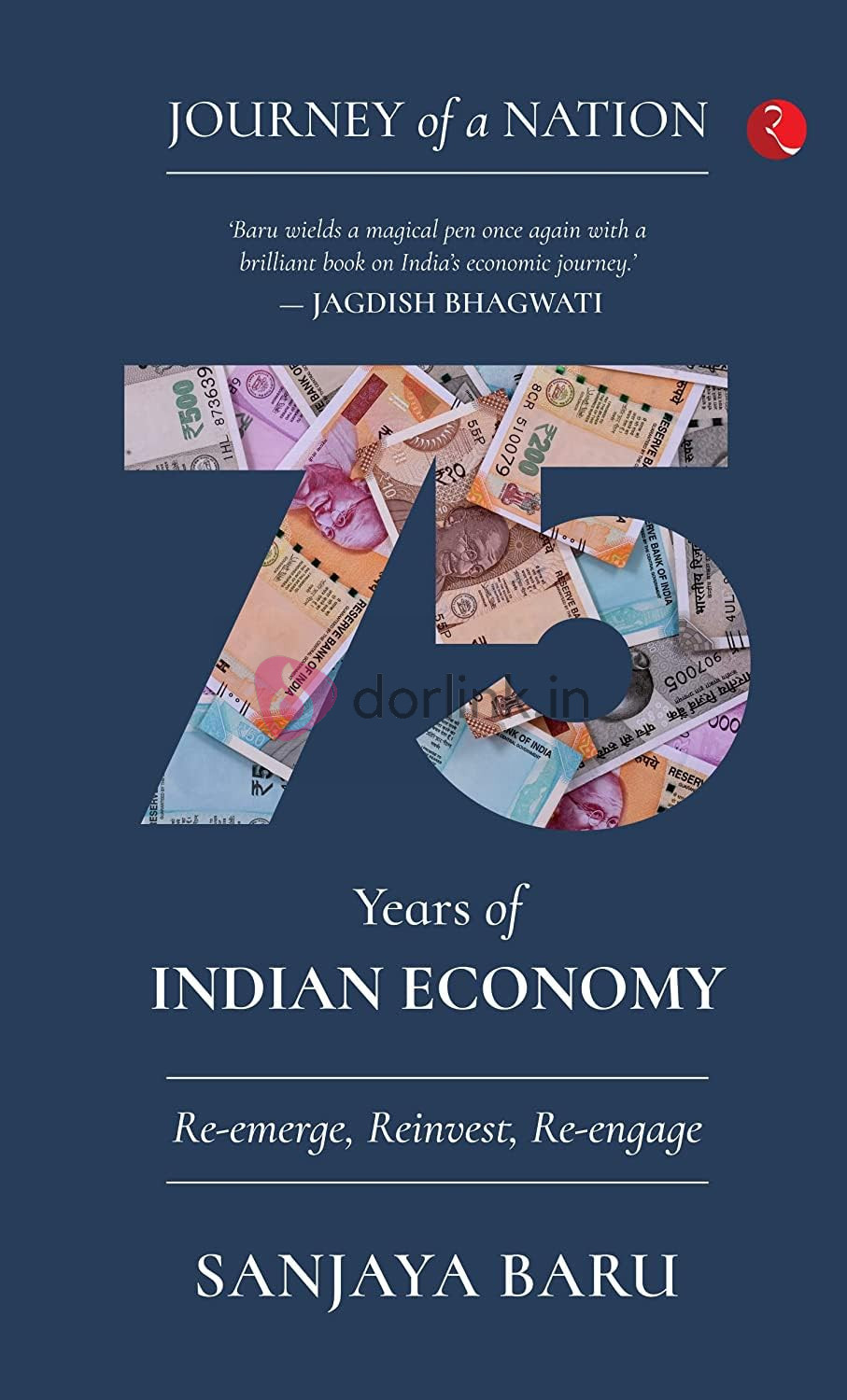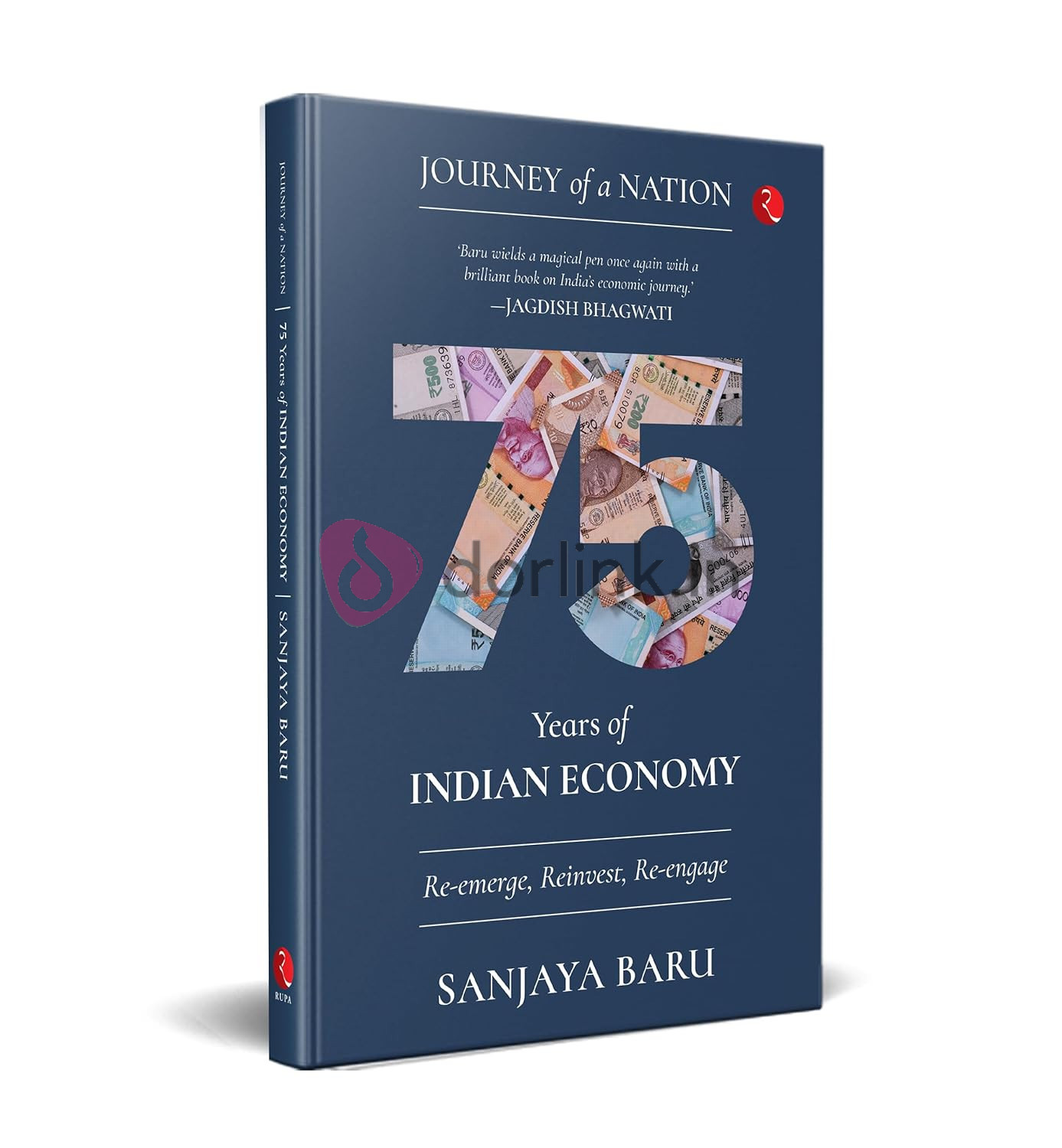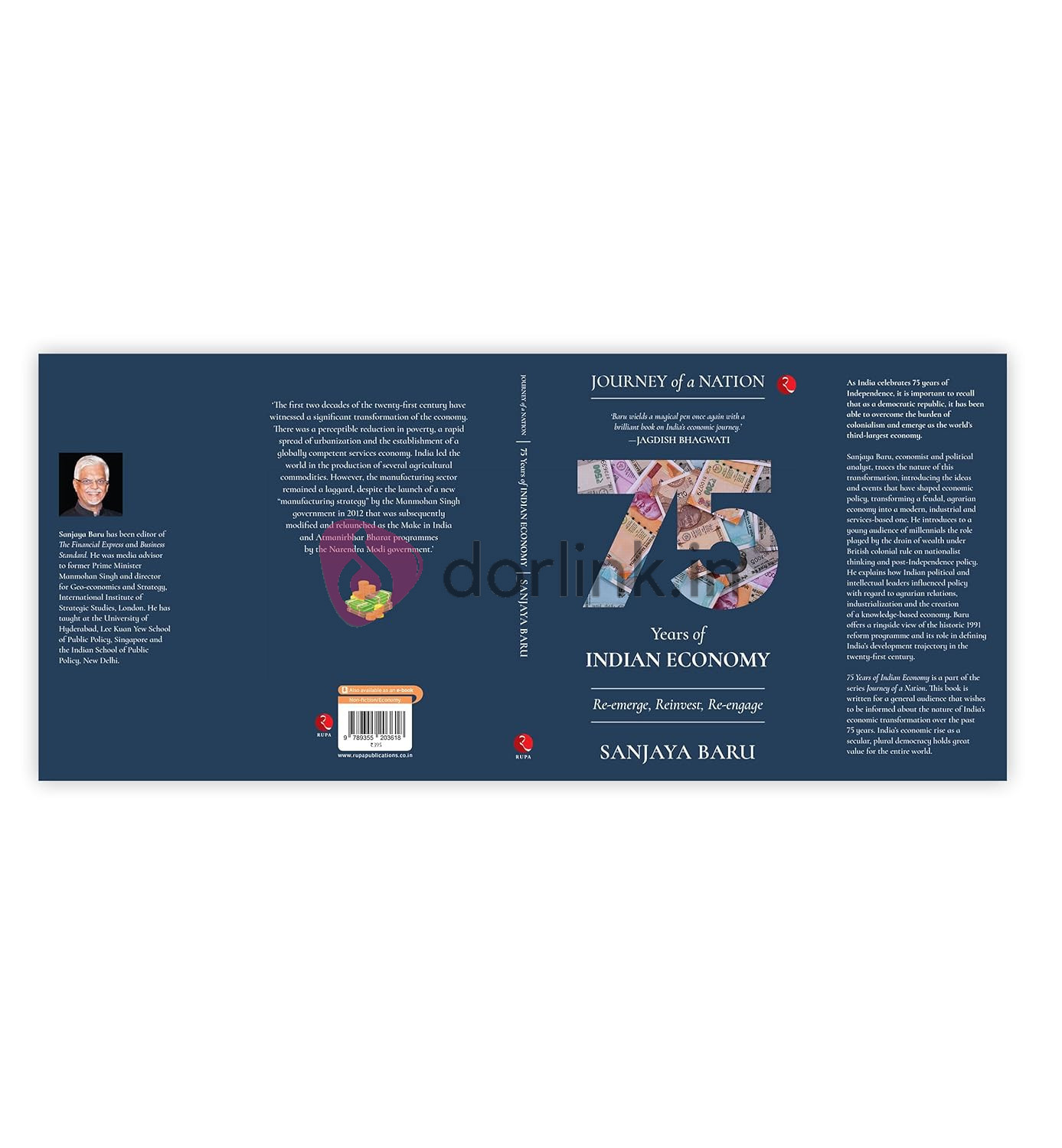Writer : Sanjaya Baru
- Shipping Time : NA
- Policy : Return/Cancellation?
You can return physically damaged products or wrong items delivered within 24 hours with photo/video proof.
Contact Customer Support for return initiation and receive return authorization via email. Securely package for return.
Refunds for eligible returns are processed within 7-10 business days via Bank Transfer.
Order cancellation allowed within 24 hours of placing it. Standard policy not applicable for undamaged/wrong product cases. Detailed info. - Genre : Essays>Judicial / Political / Legislative System Analysis
- Publication Year : 2022
- ISBN No : 978-93-55203-61-8
- Binding : Card Board (Hard) with Gel Jacket
- Pages : 192
- Weight : 270 gms
- Height x Width x Depth : 8.5x5.5x0.6 Inch
About the Book
As India celebrates 75 years of Independence, it is important to recall that as a democratic republic, it has been able to overcome the burden of colonialism and emerge as the world’s third-largest economy. Sanjaya Baru, economist and political analyst, traces the nature of this transformation, introducing the ideas and events that have shaped economic policy, transforming a feudal, agrarian economy into a modern, industrial and services-based one. He introduces to a young audience of millennials the role played by the drain of wealth under British colonial rule on nationalist thinking and post-Independence policy. He explains how Indian political and intellectual leaders influenced policy with regard to agrarian relations, industrialization and the creation of a knowledge-based economy. Baru offers a ringside view of the historic 1991 reform programme and its role in defining India’s development trajectory in the twenty-first century. 75 Years of Indian Economy is a part of the series Journey of a Nation. This book is written for a general audience that wishes to be informed about the nature of India’s economic transformation over the past 75 years. India’s economic rise as a secular, plural democracy holds great value for the entire world. ‘The first two decades of the twenty-first century have witnessed a significant transformation of the economy. There was a perceptible reduction in poverty, a rapid spread of urbanization and the establishment of a globally competent services economy. India led the world in the production of several agricultural commodities. However, the manufacturing sector remained a laggard, despite the launch of a new “manufacturing strategy” by the Manmohan Singh government in 2012 that was subsequently modified and relaunched as the Make in India and Atmanirbhar Bharat programmes by the Narendra Modi government.’



